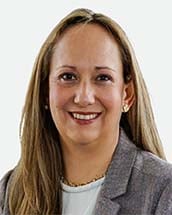At the Annual Compliance conference recently held in London, we were honoured to hear from Baroness Hodge at our Annual Compliance Conference. Baroness Hodge offered a candid and comprehensive overview of the UK’s ongoing challenges and opportunities in tackling economic crime, tax avoidance, and illicit finance. Drawing on decades of parliamentary experience and her current role as the UK Prime Minister’s anti-corruption champion, Baroness Hodge outlined a wide-ranging agenda for reform, grounded in transparency, accountability, and the strategic use of legislative tools to reshape behaviour across the financial and political sectors.
Baroness Hodge began by framing economic crime as a continuum – from tax avoidance to tax evasion to outright corruption – with the UK’s financial services sector playing a central role. Despite the sector’s economic importance, its entanglement with secrecy jurisdictions and shell companies has facilitated large-scale illicit finance. The scale is staggering: an estimated £350 billion in illicit flows annually, with disproportionate harm to developing countries and UK public services. The UK’s corporate registry remains vulnerable, with thousands of shell companies registered under implausible details, including minors listed as persons of significant control and mass registrations at single addresses. These systemic weaknesses, she argued, are not merely technical failings but moral failures that undermine trust and enable broader criminality.
The session also highlighted the UK’s patchy enforcement record. While landmark leaks such as the Panama and Paradise Papers exposed global networks of corruption, the UK’s response has often lagged behind international counterparts. Baroness Hodge pointed to the US’s aggressive pursuit of financial institutions (such as the $2 billion fine in the Danske Bank case) as a contrast to the UK’s inaction. She advocated for stronger enforcement mechanisms, including recycling fines into investigative capacity and leveraging legal talent from the private sector. The introduction of a new corporate offence, the “Failure to Prevent Fraud” was proposed as a behavioural lever, akin to the Bribery Act’s impact on corporate culture.
Transparency and smart regulation were recurring themes. Baroness Hodge called for public registers of beneficial ownership across all UK-linked jurisdictions, including crown dependencies and overseas territories. She warned of the growing use of trust structures to obscure ownership and argued that legitimate financial arrangements should not require secrecy. The need for integrated, comprehensive legislation was also emphasised, replacing the current patchwork of underutilised laws. Reform of professional supervision, director liability, and political integrity (spanning lobbying, appointments, and party funding) were identified as critical to restoring the UK’s reputation as a trusted jurisdiction.
Finally, the discussion turned to the intersection of anti-corruption and national security. Baroness Hodge cited the infiltration of UK politics and property markets by Russian and Central Asian wealth as a direct threat to democratic institutions. She noted the use of political donations to influence policy and the failure to enforce existing sanctions regimes. While recent progress has been made in sanctions policy, enforcement remains under-resourced. The broader challenge, she concluded, is to convince policymakers that anti-corruption is not a constraint on growth but a prerequisite for attracting legitimate global capital. In a world increasingly shaped by geopolitical risk and reputational scrutiny, the UK must lead with integrity and transparency.
Conclusion
Baroness Hodge’s underscored the urgent need for systemic reform in the UK’s approach to economic crime and corruption. From corporate transparency to political accountability, the agenda she outlined is, in her view, both ambitious and necessary. The UK’s financial infrastructure, while a pillar of its economy, must not be allowed to serve as a conduit for illicit finance. Legislative reform, robust enforcement, and cultural change within both the public and private sectors are essential to restoring trust and safeguarding national security.
You can access all materials from the Annual Compliance Conference 2025 here.
Additional Guest Speaker:
David Knott (Case Controller, Serious Fraud Office, UK)







